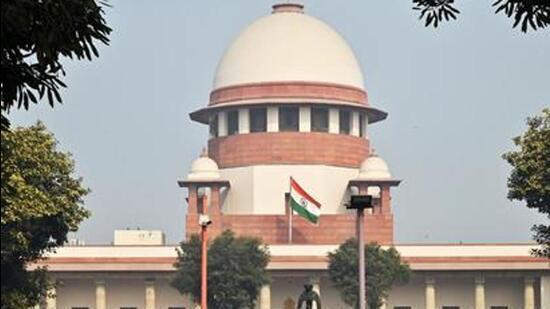
Calling someone ‘Miyan-Tiyan’ & ‘Pakistani’ not an offence: Supreme Court
In a recent verdict, the Supreme Court of India has clarified that using derogatory terms such as “Miyan-Tiyan” and “Pakistani” may be in poor taste, but it does not constitute a criminal offence. The ruling came after a case was filed against an 80-year-old man who allegedly hurled abuses at an Urdu translator in Jharkhand.
The case was filed by the translator, who claimed that the 80-year-old man had used derogatory language against him. The translator, who was hired to translate a speech, alleged that the old man had shouted at him, calling him “Miyan-Tiyan” and “Pakistani”. The translator felt threatened and humiliated by the comments and decided to file a police complaint.
However, the Supreme Court has now ruled that the remarks made by the 80-year-old man do not amount to hurting the religious sentiments of the translator. In its judgment, the court stated that while the comments may be offensive, they do not constitute a criminal offence.
The ruling has sparked a debate about the use of derogatory language and its impact on individuals and society. While some have welcomed the court’s decision, others have expressed dismay and disappointment.
The Context of the Case
The case in question dates back to 2019, when the 80-year-old man allegedly made the remarks at a public gathering in Jharkhand. The translator, who was hired to translate a speech, claimed that the old man had shouted at him, calling him “Miyan-Tiyan” and “Pakistani”. The translator felt threatened and humiliated by the comments and decided to file a police complaint.
The case was initially heard by the Jharkhand High Court, which ruled that the remarks made by the 80-year-old man were indeed offensive and constituted a criminal offence. However, the Supreme Court has now overturned this ruling, stating that the remarks do not amount to hurting the religious sentiments of the translator.
The Implications of the Ruling
The Supreme Court’s ruling has significant implications for the use of derogatory language in India. While the court has clarified that using terms such as “Miyan-Tiyan” and “Pakistani” may be in poor taste, it has not made them a criminal offence.
This ruling may have far-reaching consequences, as it may encourage individuals to use derogatory language without fear of legal repercussions. On the other hand, it may also lead to a decrease in the use of such language, as individuals may be more mindful of the potential impact of their words.
The Debate About Derogatory Language
The use of derogatory language is a sensitive issue in India, where there are numerous linguistic and cultural communities. The use of such language can be deeply offensive and divisive, and can lead to social and cultural tensions.
In recent years, there have been several instances of derogatory language being used against individuals and communities. For example, there have been reports of individuals being called “Rapist” and “Terrorist” by political leaders and public figures.
The use of derogatory language can have serious consequences, including social exclusion, marginalization, and even violence. In this context, the Supreme Court’s ruling may be seen as a step in the right direction, as it may encourage individuals to use more respectful language and to avoid using derogatory terms.
Conclusion
In conclusion, the Supreme Court’s ruling that calling someone “Miyan-Tiyan” and “Pakistani” is not an offence is a significant development in the debate about derogatory language in India. While the court’s ruling may be seen as a step in the right direction, it is also important to recognize that the use of such language can have serious consequences, including social exclusion, marginalization, and even violence.
It is essential that individuals and communities work together to create a more respectful and inclusive society, where everyone is treated with dignity and respect. By promoting tolerance and understanding, we can build a more harmonious and peaceful society, where everyone can thrive.



